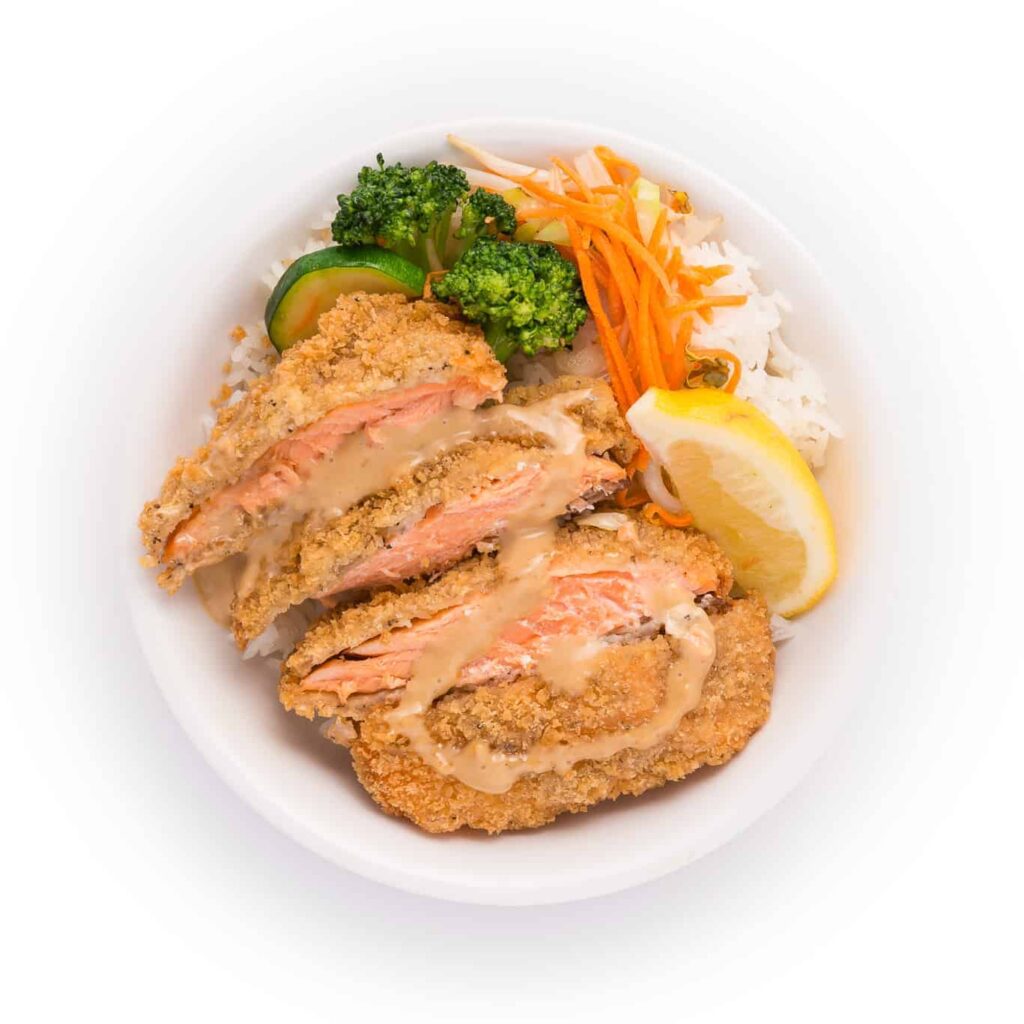What’s Panko about?
Sure, it’s slightly more expensive than your regular run-of-the-mill bread crumbs, but the flavor and the quality of the coating you get is worth it. Many chefs are aware of its superior qualities, but just exactly what makes panko so special?
It’s all about the bread baking technique! incredibly enough the bread used for panko is cooked using electrical currents. Electrical rods are introduced into the raw dough, which then cooks it from the inside.
This yields a crust-less bread that looks more like a blob than a loaf. The bread is then carefully ground up and the end result is a crumb that is light and flaky, with a form resembling a sliver more than a crumb.
On a microscopic level, panko has more space between the crumbs and that allows for air to go in between them. Air causes the light and fluffy nature of panko, and in the cooking process this helps with the crispiness and heat absorption of what you are cooking.
When you deep fry with panko e.g. chicken schnitzel, crab cakes you will see that your food comes out crispy and golden.
Origins
This quintessentially Japanese ingredient has western origins however. Panko comes from wheat, which was probably introduced to Japan during the early days of European ultra maritime exploration. In the days of Vasco da Gama, the Portuguese brought with his crew pão (bread).
Panko in Japan is commonly found in a dish called Tonkatsu, a Japanese rendition of the European schnitzel or Cotoletta. A breaded cut of thinly sliced meat, Tonkatsu was developed in Japan late in the 19th century, which is precisely the era when the island nation was forced open to western influence after centuries of isolation.
This era, known as the Meiji restoration, saw Japan rapidly adopting European ways, and food could obviously not be left out of this cultural exchange. So much so that a new style of food developed in Japan, the Yoshoku or western inspired food, and in the case of panko, what is more western that bread?
Panko Recipes
A good panko recipe includes anything that calls for the use of bread crumbs, and this extends to chicken, fish, beef and even vegetarian dishes.
For chicken lovers, a wide range of recipes exists; which include Panko-Crusted Oven-Fried Chicken, Crispy Parmesan Crusted Chicken (Baked) and Crispy Panko Chicken Breasts amongst others might do the trick.
A Parmesan-Panko Steaks with Tomato Paste recipe might satisfy your beef cravings, while recipes like the Panko-style Crusted Tofu and Vegetables or even Panko-crusted Zucchini Chips might cater for those of us on the vegetarian side of things.
Panko dishes are also flexible enough to offer gluten free options which is quite remarkable. I myself have substituted panko for chicken parmigiana and pork schnitzels on occasion.
Japanese Panko Salmon Bowl
One panko dish in particular which I found particularly enjoyable is the Japanese Panko Salmon bowl. It is basically panko bread crumbs with a light drizzle of salt, pepper and olive oil are mixed together and used to coat some fresh salmon.
The fish is then fried in oil and served on a bed of rice and veggies with sesame sauce that I’m sure will convince you that panko is truly special.
Finding good restaurants that offer such lovely panko dishes isn’t always an easy task, but I highly recommend Rice bowl deluxe. Rice Bowl Deluxe offers authentic Asian flavors freshly made in-house with taste and health as priorities.
If you want your taste buds to get an out-of-this-world experience, I encourage you to try their Panko Salmon bowl. It’s that good! So If you’re looking for places to eat in Edmonton, be sure to check out Rice Bowl Deluxe. You won’t regret it





Thanks For Sharing this amazing recipe. My family loved it. I will be sharing this recipe with my friends. Hope the will like it.